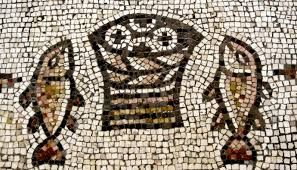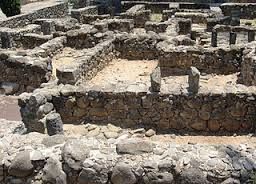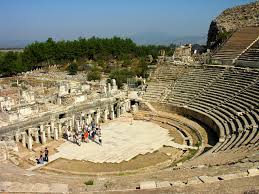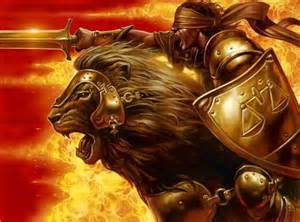The Early Church was known for the way they loved one another. There’s a lesson here for us.
IT’S WORTH CONSIDERING
In the days of the Early Church, the love the believers had for one another was making an impact on the culture. Historians tell us that the Romans and the Greeks, while misunderstanding what these Christians were really all about, did marvel at how they loved one another. This is significant, because it illuminates the essence of Jesus’ message. He came as a physical manifestation and display of the One True God who, at His core, was love. Jesus came to show God’s unconquerable benevolent love to those He had created. Jesus often reminded His disciples that as the Father had sent, Him, so He was sending them. They were to display that same love to everyone they met.
us that the Romans and the Greeks, while misunderstanding what these Christians were really all about, did marvel at how they loved one another. This is significant, because it illuminates the essence of Jesus’ message. He came as a physical manifestation and display of the One True God who, at His core, was love. Jesus came to show God’s unconquerable benevolent love to those He had created. Jesus often reminded His disciples that as the Father had sent, Him, so He was sending them. They were to display that same love to everyone they met.
 Apparently, the Early Church understood its primary mission, either out of obedience, tradition, or out of a sense of self-preservation. Perhaps the light went on and they understood the importance of loving one another because love was what drew them to Christ and His message in the first place. Perhaps the way they grew up, in an insula (of extended family members with connecting “residences” surrounding a common open space) had left on them an indelible mark of “community” and dependency. Perhaps the persecution they faced as societal outcasts left them with no choice but to come together for encouragement and protection.
Apparently, the Early Church understood its primary mission, either out of obedience, tradition, or out of a sense of self-preservation. Perhaps the light went on and they understood the importance of loving one another because love was what drew them to Christ and His message in the first place. Perhaps the way they grew up, in an insula (of extended family members with connecting “residences” surrounding a common open space) had left on them an indelible mark of “community” and dependency. Perhaps the persecution they faced as societal outcasts left them with no choice but to come together for encouragement and protection.
Regardless of the reasons for their communal lifestyles and love for one another, God used them to draw others into His kingdom. We should never forget that God used the Jewish people and nation as the vehicle through which He would make Himself known to the world. Therefore, we should pay close attention to how He used these first believers. It’s a lesson in getting back to the basics. It’s a lesson in understanding how God intended to impact the world.
It starts with believers loving one another. In what has been called “Jesus’ High Priestly Prayer” in John 17, Jesus prays that we may all be one, as He and the Father are one. His desire was that we would learn and live out, with one another and with the Father, the inseparable oneness of the Trinity.
AS I SEE IT
Compare the typical church today to the Early Church. If we were brutally honest, we, as 21st century “Christians” in America, would have to admit that we don’t really need each other, and often, we don’t really want to spend a lot of time with some of our fellow believers. Our American affluence has left us rather self-sufficient and proud that we don’t need anyone’s help. When we walk into a church, our first reaction is to find a seat where we can maintain “our space” – not too close to anyone unless it’s absolutely necessary. Introduce 100 people into an auditorium seating 1000 and you’ll typically find 100 people scattered all over the place.
This, I believe, is symptomatic of the fact that we, like the Church of Ephesus in Revelation 2, have left our first love. How can we love God if we don’t love one another the way He intends? How can we expect to export a love to a lost world if we have failed to love one another within the household of faith? Let’s face it, everything in our culture runs counter to this, so we’ll have to make a concerted effort to love our fellow believers, especially those whom God has gathered together in our local fellowship.
If Christ is going to build His Church as He said He would, I believe He’s going to have to start with the basics. Vince Lombardy, former well-known coach of the Green Bay  Packers, was known for his typical speech of the first day of training camp. Holding up the pigskin, he would address his team and say, “Gentlemen, this is a football.” I can almost See Jesus somehow projecting an image of the Early Church in its unity, dependence, and genuine caring for one another and saying, “This, My children, is what I want my Church to return to. This is to be your new starting point. Without this, you will never fulfill your mission.
Packers, was known for his typical speech of the first day of training camp. Holding up the pigskin, he would address his team and say, “Gentlemen, this is a football.” I can almost See Jesus somehow projecting an image of the Early Church in its unity, dependence, and genuine caring for one another and saying, “This, My children, is what I want my Church to return to. This is to be your new starting point. Without this, you will never fulfill your mission.
The early Church faced a culture that required you to burn incense to the region’s god(s) in order to participate in the local commerce or politics. Christians, who refused to do so, were banned from participating in much of the city’s life. Consequently, they often came together to share in the Agape Love Feast. Here, their common bonds offset all the rejection they experienced every day.
Now imagine that you are a slave in the Roman culture and you are invited by a Christian to one of these feasts. Instead of being served last, you are served first. Instead of being treated like a worthless inhuman piece of property, you are treated like a king. How would you feel? What would you think of these Christians and their beliefs? Wouldn’t you want to be around them as often as possible? Wouldn’t you want to know what made them that way?
served last, you are served first. Instead of being treated like a worthless inhuman piece of property, you are treated like a king. How would you feel? What would you think of these Christians and their beliefs? Wouldn’t you want to be around them as often as possible? Wouldn’t you want to know what made them that way?
This, I believe, is the model Jesus Christ is setting before us. It’s back to basics. It’s not about a program to grow our churches. Nor is it about stirring our members to become more active. It’s all about letting Christ’s love flow through us in very tangible ways and leaving the results to Him. Wouldn’t it be great if the most common comment about our church was, “O, how they love one another?”






Leave A Comment